Systems Biology
The Systems Biology Ireland lab at UCD developed models that are based on a person’s own biochemistry. Once integrated with a computer algorithm the team led by Professor Walter Kolch can predict with a high degree of accuracy how a person will respond to various treatments.
The work has been underway at UCD for five or six years and has focused on picking apart the complex interactions that take place between our cells. “We are trying to understand the communications network in the human body,” he says.
Many diseases occur when a fault occurs in the complex inter-cellular communications system. “We use computational methods to investigate this network and when used with biological information we can simulate a lot of this on the computer and simulate what is going wrong,” Kolch explains. “People are really excited because you can feel that motivation of doing work which nobody has done before.”
“It will revolutionise the way we go about providing medical treatments,” he says.
“People are really excited because you can feel that motivation of doing work which nobody has done before”
“We used this model to find high risk patients who could not previously be identified”
In effect it creates a computer model that mimics the way an individual’s cells would work. With the bio-silico model it becomes possible to test treatment options, decide on what drugs to use and know when a commonly used treatment might not work.
Studies have shown that the patient response rate for the world’s top 10 drugs only runs at between 10 and 30 per cent, he says. “That means 70 to 90 per cent of those who take those drugs don’t do any better, they just get the side effects,” Kolch says. “We can use computations to make a personal patient model and then make the right drug choices for them.”
The important thing is Kolch and his team already have good data showing that the approach works.They produced a model for a childhood cancer of the peripheral nervous system called neuroblastoma and then used biological data from 700 patients. “We used this model to find high risk patients who could not previously be identified,” he says. These are the patients who require aggressive high dose chemo, an approach that would have caused serious but unnecessary side effects in those outside this high risk group. His models reached accuracy rates in the 90 per cent range, he says.
The team previously worked with a clinic in Mainz, Germany, looking at children who had resisted all treatments and had moved into hospice care. But Kolch’s models were able to identify different chemo options that would not have been used in the past in these children. Kolch has now set up a similar collaboration, working with Prof. Owen Smith CBE, Professor of Paediatrics and Dr Cormac Owens, Oncology Consultant, Our Lady’s Children’s Hospital, Crumlin.
A more accurate diagnosis is a key reason for developing this bio-silico approach but it is not the only one. The models can identify the best treatment options for an individual before any drugs are introduced and can help predict what the most likely patient outcome will be. It will also assist in choosing a treatment option with the lowest possible side effects.
It also provides a way to cut the cost of health care, Kolch argues. Many of the compounds used to treat cancer are extremely expensive and are applied generally, even though a person may not gain sufficient benefit from their use.
The models confirm whether a person will be helped whatever the cost of the drug therapy. “If you only give costly drugs to those who will benefit from them it could save the health care system a lot of money,” he says. “The implications are we can treat people better while avoiding side effects, enhance quality of life and make it cheaper for the health care system.”
Kolch’s work holds great promise for the future of medicine. Specific diseases can currently be modelled, but the ultimate goal is to simulate the entire patient with a truly personalised bio-silico model. “If you could simulate the patient you could try to prevent diseases because you can anticipate them.” It means you can stop the disease before it starts, he says.
In the shorter term the next step must be more clinical studies. These can be used to assess the approach and broaden its application, as well as pointing the way towards making this user friendly and easy to use for clinicians. At the moment the algorithms remain too complex for clinicians and Kolch’s team must integrate the biological information and operate the models. This will change over time and Kolch expects that three years’ work should see a bed-side system that can be used in the ward.
And the models are not restricted for use with cancers. “You can apply this to anything. In principle there is no limitation to what you apply this to, you can study any disease.”
He believes that an early disease likely to come into the research is diabetes given the sharp rise in people presenting with the condition.
As ever money comes into the equation. Clinical research studies could begin immediately if there was sufficient funding to support them.
“It will revolutionise the way we go about providing medical treatments”

Professor Walter Kolch,
SBI Director UCD
Conway Institute Dublin 4,
Ireland
T: +353 1716 6331
E: walter.kolch@ucd.ie
Featured Research Papers
Professor Walter Kolch
Having obtained a MD from the University of Vienna, Austria, Walter Kolch worked in academia, research institutions and pharmaceutical industry. Prior to moving to Ireland in 2009, he was Professor for Molecular Cell Biology at the University of Glasgow and Senior Group Leader at the Beatson Institute for Cancer Research in Glasgow, UK .
He is currently Director of Systems Biology Ireland at University College Dublin, Ireland. His research interests developed from the study of oncogenes to include signal transduction, proteomics and systems biology with a view to understanding how biochemical signalling networks specify biological behaviour. He has built an international reputation across these areas, contributing both to conceptual advances in these fields as well as to practical implementations as documented by his publication record (258; Total citations: 26790 (Google Scholar); H-Index 80).
Research highlights include development and application of novel methods for the mapping of signal transduction pathways based on dynamic interaction proteomics, new approaches for network reconstruction and analysis, and the identification of drug resistance mechanisms due to network adaptations. Kolch is ranked number 3 in the world for “Precision Medicine” and is in the world’s top 50 researchers for Proteomics, Systems Biology and Signal Transduction (Google Scholar).
His research has received funding from funding bodies EU Horizon 2020 and European Commission EU-FP6/FP7 programmes, Enterprise Ireland, UK Biotechnology and Biological Sciences Research Council (BBSRC) and Physical Sciences Research Council (EPSRC), Association Science et Technologie, Science Foundation Ireland (SFI), and Higher Education Authority (HEA).
Professor Kolch’s research has also received funding from: Agilent Technologies Ireland Ltd, Siemens Ltd, Protagen AG, Hewlett-Packard Ireland Ltd., and AstraZeneca UK Ltd.

